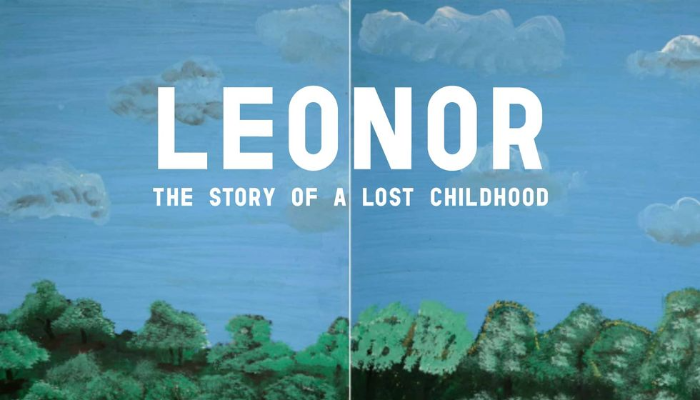It would be easy to read Paula Delgado-Kling’s book as the story of a girl’s childhood stolen by amoral left-wing ‘terrorists’ who use and abuse a minor for their own nefarious, ideologically vacuous and ultimately criminally corrupt ends.
And at one level this is the message readers will come away with, based on the simple fact that children were recruited in their thousands by the guerrillas in Colombia’s lengthy civil conflict.
According to the Memory and Conflict Observatory, a research centre, armed groups—primarily FARC and the ELN—were mostly to blame for the 16,900 cases of child recruitment since 1962.
Indeed, recruitment is not the correct word for this, and it was a callous form of exploitation of vulnerable minors on the street or from broken homes that was tantamount to coercion or trafficking.
According to InSight Crime, children between 12 and 17 years old made up the majority of these cases and, of these, 49.7 percent were students and 26.6 percent were girls.
But at another level, Leonor, the moving story of one of these children, is about a far greater enemy faced by women in this South American country, motivated neither by ideology nor necessarily poverty — men.
Levels of violence towards women continue to be sickeningly high: in 2022, there were 619 femicides in the country and Colombia’s National Institute of Legal and Forensic Medicine reported 47,771 cases of domestic violence against women.
This is only in part an indictment of a toxic macho culture—it is also undeniably a legacy of the disproportionate impact of generations of civil war on women and girls in this country.
In 2022, the Global Survivors Fund (GSF) led publication of a report into the scale of conflict-related sexual and reproductive violence (CRSRV) in Colombia that paints a shocking picture.
Over the six decades of internal armed conflict, its report noted, ‘all armed actors have systematically committed multiple types of sexual and reproductive violence. This includes rape, various acts of a sexual nature, sexual harassment, sexual slavery, forced sterilisation, forced contraception, forced pregnancy, forced abortion, trafficking for sexual exploitation, forcing a person to witness acts of a sexual nature, forcing a person to perform acts of a sexual nature or allowing a third party to perform them, sexual torture, forced maternities, forced nudity, mutilation of sexual organs, and forced changes to a person’s bodily or performative gender.’
CRSRV has been used to silence, intimidate, and/or punish survivors, human rights defenders, journalists, and social leaders, to exercise territorial control, and in militarised environments, it added. It has been used alongside other forms of violence in the conflict such as forced displacement, land dispossession, massacres, and forced recruitment.
Nor can this ‘habitual, widespread, systematic and invisible practice’ be confined to an historical context—the UN Population Fund notes that despite progress towards peace and national reconciliation, crimes of sexual violence have continued in Colombia against the backdrop of lingering fighting. Since a peace deal was signed in 2016, more than 1,500 people, mostly women, have reported experiencing conflict-related sexual violence.
It is against this backdrop that Leonor should be assessed. Paula Delgado-Kling, an award-winning writer and journalist who moved from Colombia to Canada and then the US, maintained contact with her subject for 19 years after the girl had left the FARC in the region of Mocoa, capital of Putumayo department.
She paints a picture of a life thrown into violent disorder at an early age in the lawless countryside where sexual violence against women is all but endemic.
While Leonor’s time spent with the guerrillas arguably defines the book—she was forced into sexual slavery by a commander 34 years her senior, who maintained a harem of vulnerable young women in between his drug-trafficking activities—the abuse she faced was by no means confined to the FARC.
Raped at a young age by her own father, she was surrounded by sexual violence. Her older sister Consuelo was ‘boy crazy’ and paid a high price, ultimately being tortured and murdered—probably by members of the army for fraternising with men from the FARC—her body dumped in the street outside the family home as a warning.
Leonor is, therefore, not a simple story of bad left-wing guerrillas, good right-wing army—it is one in which the dehumanisation of women forms a prevailing undercurrent of the pursuit or exercise of power by men of all stripes in even the most quotidian circumstances.
Delgado-Kling herself is also a character in this tale, setting the turmoil of Leonor’s life against the experiences of her own privileged background as a child of the Colombian elite who was also exposed to the country’s violent undertow.
The family left Colombia for North America in 1984 when she was eight, and on her trips back she was accompanied everywhere by bodyguards. At one stage her own brother was kidnapped and held in captivity for six months, and the account she has pieced together from the little he revealed to her offers a personal insight into the wider trauma social divisions can inflict upon people simply going about their business.
If there is a small redemption here, it is that Leonor survived the many traumas visited upon her in childhood and adolescence to raise her own two children.
However, as Delgado-Kling concludes wearily, women across Colombia continue to be the targets of male violence.
The author writes of the present: ‘The term “femicide” was thrown around by several think tanks. Women faced domestic abuse and sexual slavery, and their stories were hardly covered by local media. Women remained the silent victims.’















